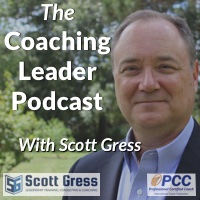
Does this describe your church or organization? You’ve got a few key players and one or two all stars. Whatever is happening, they are the “go to” people who get it done. You are relieved. Another problem averted, another ministry or project accomplished. Take a break. But then the next thing comes up. It may be a routine activity or a recurring project and you begin to look around for who will “step up.” There they are. Willing, smiling and eager to knock it out.
So what’s wrong with this picture? Lots of things. Lots.
First, all the institutional knowledge is guarded and kept by a few. So what happens when reliable Randy gets transferred to the home office and leaves? What happens when consistent Constance dies? All of their experience and knowledge and how-to goes right along with them.
Secondly, All stars can tend to feel like prima-donnas after a while. Fairly or unfairly it happens slowly and sneakily. “No one else is stepping up but me.” “What’s their problem?” “I’m the all star and I deserve a greater say in how things go and who does what.” You can take it from there. It is a problem. It can be dormant but it can definitely appear without warning. We are sinful people after all.
Thirdly, and worst of all, if this sounds familiar, you are leaving so much talent and giftedness and potential on the table. The unspoken, unnoticed sin of the church is that a whole tsunami of ministry is left blocked behind the Aswan dam of always relying on key volunteers.
I can hear the excuses and cries of “foul” as I write. “No one else will do anything, no one else seems interested. No one else is stepping up.” Sure. Why should they? You don’t need them! How can they compete with reliable Randy and consistent Constance? Then when that brave person or newcomer tries to break into the small group of people who know one another well and get it done, they are innocently or not so innocently shut out from contributing ideas or otherwise using their talents. So why bother? They slowly give up and sometimes stop attending worship.
These are the unintended consequences of always leaning on your go-to’s. So what message are you really sending? “You get what you create and allow” is the truism that fits here too.
So what do you do?
First notice what is really going on. See above. Connect the dots even if cause and effect are not so obvious.
Second begin to ask your old reliables, “who are you mentoring?” “Who are you developing?” “Who are you helping to use their God given gifts?” Follow up on those who tried to break in but didn’t seem welcomed or otherwise get traction. Ask them what happened. Get the real story. Then have the brave conversation with the people who were less than welcoming and shed some light on this blind spot for them. Do it through questions. Ask. Share the “other side.” Emphasize you are interested in developing people. Their awareness of how they may be blocking people needs to come into focus. Enlist them as problem solvers for this outcome. Be courageous.
Thirdly, initiate some small new pilot projects which come from your conversation with seldom attending Sam and his wife agnostic Alice. If they say they want to do something, find a way to support them and ask “how can I help?” Then pave the way for their success and keep an eye out for how the old reliables may require their approval or otherwise get in the way. They don’t. They shouldn’t.
Fourth, get to know all the people in the congregation including and especially those who are in the outer circle of infrequent visitors and their never attending spouses. Get time with them, talk to them, interview them. Ask what are you praying about. How is God leading you to bless other people in your life and community? How can I support you? How can I pray for you?
I can hear the next set of excuses. “No way I can talk to everyone! No way can I get to know all of them! That’s impossible!” Well I bet you aren’t doing anything like this right now so get started with modest goals. One per week. One per day. You will be energized by it!
Remember, aren’t you as a leader or pastor the chief steward of all of these gifts of the body of Christ (1 Cor 12)? So, begin to invest in others and see what emerges. Look for people who can duplicate what you are doing for them. As they experience this, they can replicate it. One of the problems with the “go-to” people is that they have never experienced that and so struggle to even know where to start.
This work is one person at a time. Work your tail off to make that experience a richly rewarding one. No, not that it is a roaring success, but they see the church, ministry or organization as believing in them and wanting to support them.
The culture will change. One life at a time. Your bench strength will get deeper and stronger. So what are you going to do today as your first step?
Rev. Scott Gress is believes in Growing People for Ministry by focussing on leadership, discipleship and teamwork. Contact Scott if you are interested in him working with you or your church. A free 30 minutes sample session is available to explore how you might work best together. The Coaching Leader Podcast is also available on iTunes and his YouTube page. You can contact Scott through email scottgress@me.com or his blog page scottgress.com or at 561-542-4472
"Growing People for Ministry" Leadership + Discipleship + Teamwork
Check out the: Coaching Leader Podcast!

